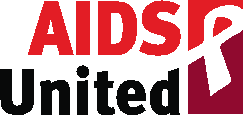
 Webinar: Coordinating Care for Children in Families with Complex Social and Health Needs-Research and Practice Date: Wednesday, July 27, 2016 Time: 9:30 to 10:30 a.m. PT / 12:30 to 1:30 p.m. ET A link to the recording and additional resources are available on the LPFCH blog: Research and Practice Perspectives—Coordinating Care for Children with Social Complexity
Webinar: Coordinating Care for Children in Families with Complex Social and Health Needs-Research and Practice Date: Wednesday, July 27, 2016 Time: 9:30 to 10:30 a.m. PT / 12:30 to 1:30 p.m. ET A link to the recording and additional resources are available on the LPFCH blog: Research and Practice Perspectives—Coordinating Care for Children with Social Complexity
The lives of children and youth with chronic or complex medical conditions often are complicated by psychosocial issues and family problems such as poverty, poor parental health, substance abuse, domestic violence, and homelessness. These children with “social complexity” are among the most frequent and highest-cost users of health care services, and their social vulnerability presents a challenge to providing high-quality care. Health care providers are increasingly being called upon to address these issues, yet resources to support them are in short supply.
This webinar is a continuation of the work that began with the Foundation’s national symposium, “Designing Systems That Work for Children with Complex Health Care Needs” (see the archived webcast and Symposium Proceedings). It builds upon the previous webinar in this series, Take Action on Care Coordination. In this webinar, two leaders in the field of social complexity discuss their work.
Speakers
 Rita Mangione-Smith, MD, MPH – Professor and Chief of the Division of General Pediatrics and Hospital Medicine at the University of Washington Department of Pediatrics. Dr. Mangione-Smith is a national leader in research on child health quality measurement and improvement, with an emphasis on evaluating patient- and family-reported outcomes. She discusses her recent work on the importance of social complexity in designing and providing health care services, especially the provision of care coordination.
Rita Mangione-Smith, MD, MPH – Professor and Chief of the Division of General Pediatrics and Hospital Medicine at the University of Washington Department of Pediatrics. Dr. Mangione-Smith is a national leader in research on child health quality measurement and improvement, with an emphasis on evaluating patient- and family-reported outcomes. She discusses her recent work on the importance of social complexity in designing and providing health care services, especially the provision of care coordination.
 Michael Harris, PhD – Professor and Chief of Pediatric Psychology in the Child Development and Rehabilitation Center at the Oregon Health & Science University. Dr. Harrises discuss how a new program, Novel Interventions in Children’s Healthcare (NICH), addresses the intersection of medical and psychosocial needs of children with chronic health problems and their families. The NICH screening protocol that identifies children in need of intensive, comprehensive care management is discussed, and Dr. Harris presents data on how the program has succeeded in improving health outcomes, reducing costs, and decreasing hospitalizations for vulnerable children and youth over the past four years.
Michael Harris, PhD – Professor and Chief of Pediatric Psychology in the Child Development and Rehabilitation Center at the Oregon Health & Science University. Dr. Harrises discuss how a new program, Novel Interventions in Children’s Healthcare (NICH), addresses the intersection of medical and psychosocial needs of children with chronic health problems and their families. The NICH screening protocol that identifies children in need of intensive, comprehensive care management is discussed, and Dr. Harris presents data on how the program has succeeded in improving health outcomes, reducing costs, and decreasing hospitalizations for vulnerable children and youth over the past four years.
 Moderator:
Moderator:
Edward L. Schor, MD – senior vice president, Lucile Packard Foundation for Children’s Health.
To make the most effective use of the webinar time, we suggest reading Filling a NICH(e) [PDF] about the NICH program.
Sponsored by the Lucile Packard Foundation for Children’s Health (LPFCH) and the Catalyst Center
The Catalyst Center, the National Center for Health Insurance and Financing for Children and Youth with Special Health Care Needs, is a project of the Center for Advancing Health Policy and Practice at Boston University School of Public Health.

